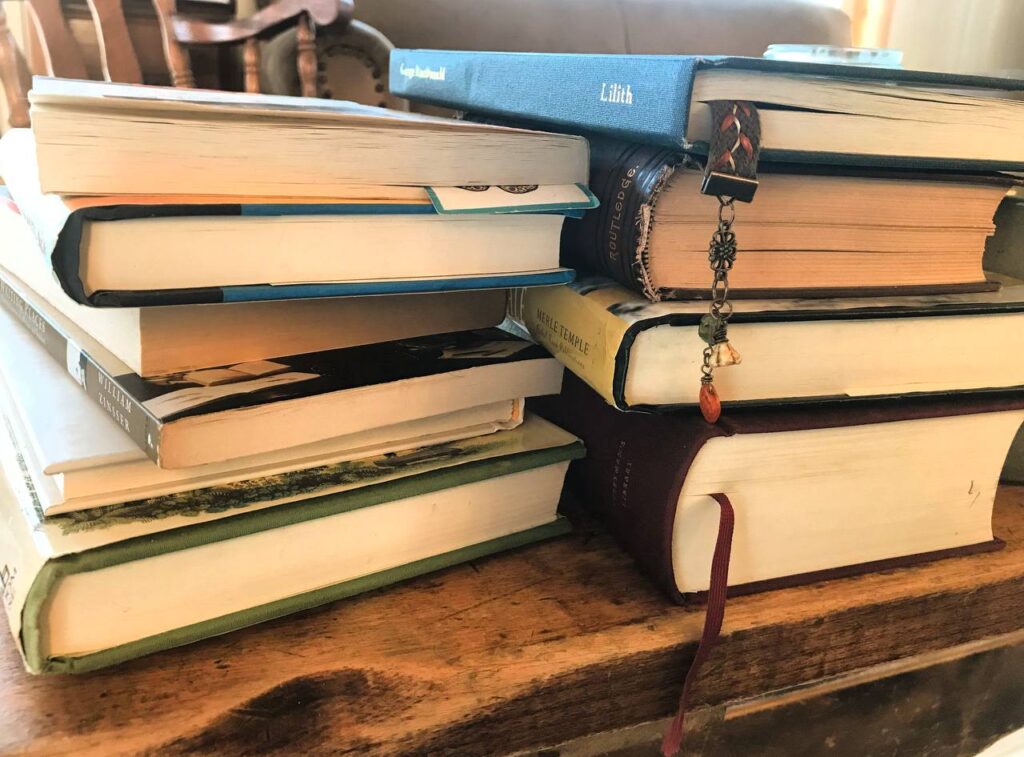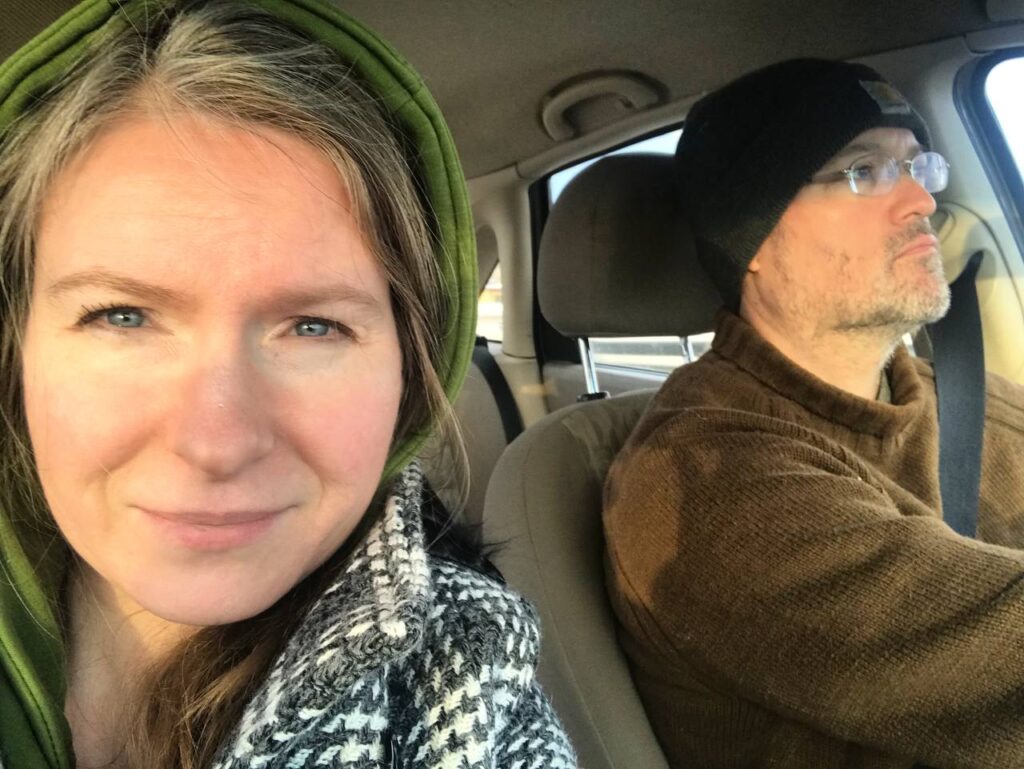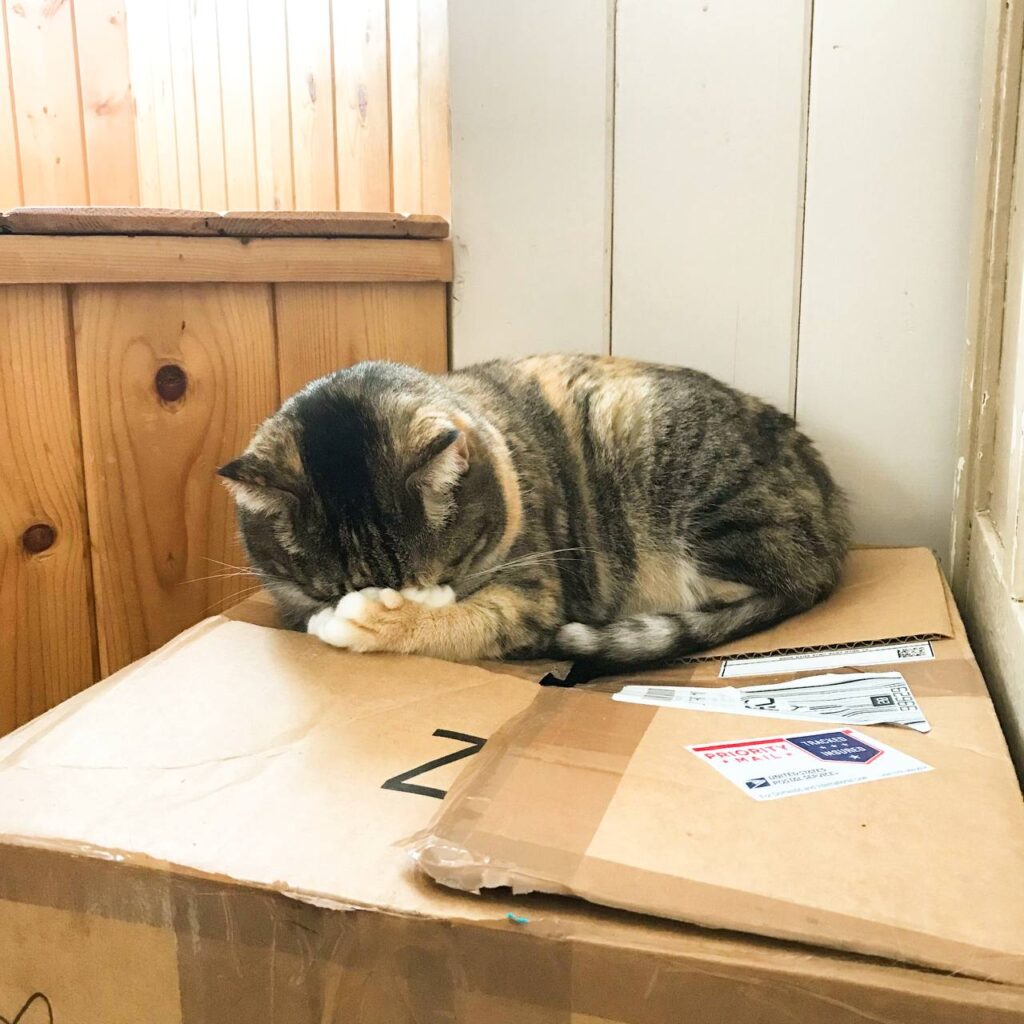A gloomy, grey, windy day. It’s finally warm and that’s the silver lining; at forty degrees, we are eighty degrees higher than a few weeks ago when we had the coldest cold snap I’ve ever known. The water melting off the roof flies sideways in the wind, and soon there will be hopeful patches of bare ground, but not today.
It was one of those weeks; the grey bleakness seemed a little in-your-face as it collided with exhaustion and PMS and the loss of three birds in one day. All the noises were louder and I was overstimulated and hypersensitive, on edge over little things like the grating sound of rattling tin foil, the shrieking of a kid, and the frustration of not being able to finish a task. But it was big things, too, like medical situations with two sons, and the transition of another son moving out. And the ache all over.

The best prescription is to go to bed early. That sounds simple but what it really means is take vitamins, check on boys, turn Kav around so he doesn’t roll off his bed, spray the couch with pet deterrent, brush and floss teeth, and finally go to the shower to have a good cry.
The next day was better, and this is how it often goes, these slumps: downward frustration, level out in rest, rise upward again. It was still windy, though; the ravens lifted at odd angles, caught themselves on extended wings, and drifted back down. Another gust and they did it again, choreography above the highway. Their fight with the wind makes the storm visible.
We were forecasted to get a big storm but it must’ve stalled out because the highest gusts were overnight and even then the stovepipe wasn’t as shrill as normal. And that’s encouraging, because it’s a picture of figurative storms, too – situations often seem dire but end up petering out into a threat that was just used to prepare and strengthen you.
Which brings me to our latest medical drama.
We saw a surgeon this week about Andrey’s cyst; he said a lot of unhelpful and unhopeful things about future needs, current dilemmas, and the catch-22 of money solving everything if only we were billionaires. But since we aren’t, things are “difficult,” and apparently not being a billionaire is called a “social problem” in condescending doctor-speak. In real English though, three front teeth will need to go and bone mass is missing; something about food moving into the nasal cavity if things aren’t reconstructed fully. Seattle was repeatedly mentioned. And even though the latest CT scan shows no change to the area in the last few months (an answer to prayer), the surgeon said “the situation has changed” – meaning, last fall he thought we could easily take care of this in Alaska, and now he realizes he was wrong but doesn’t want to say so.
“I don’t know if you’re able to consider liquidating some resources…” he says. “Of course you want to do what’s right for him.” As though we need a pep talk to make the right choices, and also as though we don’t have other children who need a roof over their heads and food to eat. We need to do what’s right for them, also, and this young doctor doesn’t understand the legalities of guardianship or the fact that Andrey’s medical expenses are no longer in our financial jurisdiction. He doesn’t know we’ve emptied our accounts for this kid before; it’s how we started this process. And he has no idea we drive a 25-year-old vehicle. My bag of tricks is running pretty low right now.
“Have we to die again?” I asked.
“No,” he answered, with a smile like the Mother’s; “you have died into life, and will die no more; you have only to keep dead. Once dying as we die here, all the dying is over. Now you have only to live, and that you must, with all your blessed might. The more you live, the stronger you become to live.”
– George MacDonald, Lilith
And I think we must be growing stronger, because it’s a battle to keep the wind at bay when it’s trying to fly right in your face, flinging words of weighty responsibility that aren’t ours to really be concerned about. The storm may turn out to be nothing. And the storm isn’t the end-all-be-all anyway, although the enemy wants us to think so. The storm answers to the same God we do – the difference is that God gave us authority to speak to the wind and waves like He did.
For through the law I died to the law, so that I might live to God. I have been crucified with Christ. It is no longer I who live, but Christ who lives in me. And the life I now live in the flesh I live by faith in the Son of God, who loved me and gave himself for me.
– Galatians 2:19-20
The more we live, the more we understand that the storm doesn’t command us. We command it.

Which doesn’t mean we don’t (or shouldn’t) grieve as we face it, because oh, the wind is terrible sometimes. Parenting can rip you wide open, and whether it’s done badly or done well, it leads to pain. The only safe place is in the lukewarm middle where nothing matters because you willfully hold yourself back, refusing to let grief touch you, and I’ve been tempted there before. But that’s not trusting God or dying to self; that’s protecting yourself while everything dies around you. And that protection is a lie that leads to the wrong kind of death.
Then Jesus told his disciples, “If anyone would come after me, let him deny himself and take up his cross and follow me. For whoever would save his life will lose it, but whoever loses his life for my sake will find it. For what will it profit a man if he gains the whole world and forfeits his soul? Or what shall a man give in return for his soul?”
– Matthew 16:24-26
How can we who died to sin still live in it? Do you not know that all of us who have been baptized into Christ Jesus were baptized into his death? We were buried therefore with him by baptism into death, in order that, just as Christ was raised from the dead by the glory of the Father, we too might walk in newness of life.
– Romans 6:2b-4
So there are two kinds of pain, just as there are two kinds of death – one side is fruitful and leads to healing and restoration and life, and the other is pointless, just leading to more pain and death.
For godly grief produces a repentance that leads to salvation without regret, whereas worldly grief produces death.
– 2 Corinthians 7:10
Over the last week I’ve grieved over a dead chicken, a distant child, and my own selfishness and imperfections. We grieve our inability to be all things to all people. We grieve the lost time and gained absence and the increasing gap between things that should be close instead of far apart.
But just because a situation is not what it should be doesn’t mean it won’t be what it ought to be later – either in the near future, or on the other side. And this is what God keeps reminding me.
“I told you, brother, all would be well!—When next you would comfort, say, ‘What will be well, is even now well.’”
– George MacDonald, Lilith
What will be well, is even now well. That doesn’t mean the pain or sickness or wrongdoing or sin was God’s will. It means He makes all things new.
So we don’t need to protect ourselves from the grief or the storm, because we get to command in the middle of it – and sometimes what we need to command is ourselves, and remember it is not I who live, but Christ who lives in me. We are keeping dead, staying low, so we can live with all our blessed might. We have not lost our lives, but found them.
“But shall I not grow weary with living so strong?” I said. “What if I cease to live with all my might?”
“It needs but the will, and the strength is there!” said the Mother. “Pure life has no weakness to grow weary withal. The Life keeps generating ours.—Those who will not die, die many times, die constantly, keep dying deeper, never have done dying; here all is upwardness and love and gladness.”
– George MacDonald, Lilith

I feel that will, commanding it when an enthusiastic little guy hugs me but also inadvertently pulls my hair, and again when the huge blond tabby wants to cuddle but his claws drive through my jeans. Pain all over, amplified, but the strength is there, and so is love and gladness.
Celebration and grief mingle confusedly amid these new phases and stages, and fear threads its way into the unfamiliar. But we live dead and have done with dying, and I remind myself that all is upward from here.
Soon there will be hopeful patches of bare ground, and green life sprouting. New chicks peeping.
We’ve made it through the hardest part of winter, through the cold snap, through the grief and the storm. We’ve seen past the unhelpful and unhopeful things into the truth beyond, that all that will be well is even now well. Some things still hurt, they still matter, many of them still should’ve been different, but it will be well because God is redeeming all things, so even now it is well with my soul.










